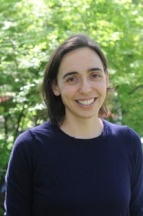In the United States, popular imagery of health in Africa often highlights disease, suffering, and risk. Yet health and medicine are important sites of meaning-making, political struggle, healing, and creativity in ways that challenge and contextualize these popular representations. Taking a transnational perspective to health and medicine, this course explores how medical and health practice on the African continent have long been enmeshed with and constitutive of broader scientific and health practice around the world. From providing medical resources and expertise that are used around the world to generating new modes of thinking about health, healing, and the body, medicine on the African continent has been constituted as a healing resource as a well as a health risk.
Through topics such as precolonial and colonial medicine, the relationship between “traditional” medicine and transnational connection, practices of reproductive health and medical travel, and the role of popular representation in the politics of health, this course examines key themes in the politics of health on the African continent. Course readings, film, and discussion will show how health, medicine, and the body offer means of interrogating broader political, environmental, and social processes that shape or impede possibilities for life and wellbeing. It will highlight the wide variety of health and medical practices on the continent and explore political possibilities for emerging and equitable modes of health distribution.

Ramah McKay, Assistant Professor of History and Sociology of Science
